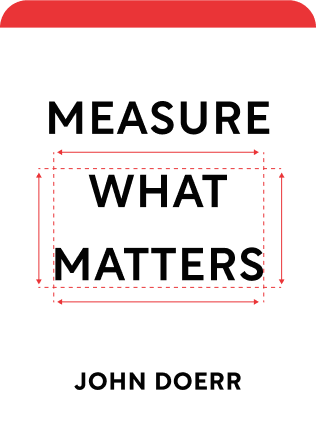

This article is an excerpt from the Shortform summary of "Measure What Matters" by John Doerr. Shortform has the world's best summaries of books you should be reading.
Like this article? Sign up for a free trial here .
What are great marketing OKR examples? Can OKRs help you achieve your marketing goals? Should your OKR marketing goals always be stretch goals?
In one of the top marketing OKR examples, Measure What Matters looks at YouTube’s effort to expand its reach. YouTube was able to achieve its OKR goals by continuously stretching and evaluating, and readjusting their plan.
Read more about YouTube as one of the best marketing OKR examples.
Marketing OKR Example: YouTube
YouTube’s growth demonstrates both the power of stretch goals and the necessity of figuring out the right metrics—in other words, learning out how to measure what matters. Identifying the right metrics helps ensure your stretch goals matter. This means that it’s one of the best marketing OKR examples
Metrics of Success
What can marketing OKR examples tell you about metrics, and how to choose the right ones? By 2011, YouTube knew how to make money, but the team didn’t know how to increase viewership. This prompted them to ask, “Which is more important? Money or viewership? Should we measure success by dollars or viewers?” These are marketing OKRS.
In contemplating these questions, the team realized that what really mattered was how much time people spent watching videos on YouTube. Consequently, they abandoned the old ways of defining success: number of clicks, number of views, and revenue amount. Instead, they focused on one thing, and one thing only: increasing the number of hours people spent watching YouTube videos. This is part of how they established marketing OKRs.
YouTube’s Stretch Goal
In 2012, leader Shishir Mehrotra set a hugely aspirational goal: “one billion hours in daily user watch time” by the end of 2016. This was a 10x increase in hours, and the number was largely arbitrary, chosen because it was simple and inspiring. But is this the best metric in OKR marketing examples?
Framing a stretch goal to make it seem manageable and possible is key to achieving it. Mehrotra pointed out that although one billion hours of watch time a day was a huge goal, it still represented less than 20% of the total number of hours people spent watching television every day.
Although they were driven toward their goal, they weren’t “10x absolutists.” They made a few sacrifices of watch time in order to provide viewers with better-quality content. But even though the team occasionally made decisions that hurt watch time in the short term, they never made a decision without meticulously calculating how it would affect watch time and considering if it was worth the cost.
By 2016, with the end-of-the-year deadline looming, the team made 150 incremental changes that each made a mere 0.2% impact on watch time. But those 0.2% changes added up. By October, YouTube hit the billion-daily-hours mark, two months ahead of schedule, and achievement for one of the top OKR marketing examples.
Redefining Success, Again
What you measure matters, but that doesn’t mean a metric that mattered last year will still matter next year. You need to change your metrics as your business and the environment change, and you need to stretch in new directions. And of course, not all OKR marketing examples are the same, since not all marketing goals are the same.
Watch time was one of the right marketing OKRs for YouTube in 2016. Today, YouTube is more focused on social responsibility, and their new metric is not watch time, but user satisfaction. To this end, they measure the “likes” and “dislikes” of videos in order to recommend quality content to each user, and in 2017 they added a “breaking news shelf” to the homepage to spread information from authoritative news sources.
YouTube is one of the best marketing OKR examples because it continuously stretched, adjusted, and reevaluated its goals.

———End of Preview———
Like what you just read? Read the rest of the world's best summary of John Doerr's "Measure What Matters" at Shortform .
Here's what you'll find in our full Measure What Matters summary :
- How Google uses OKRs to rally 100,000 employees in the right direction
- How to avoid setting useless OKRs, and how to set great ones
- Key subtle behaviors your team must master to make OKRs work






